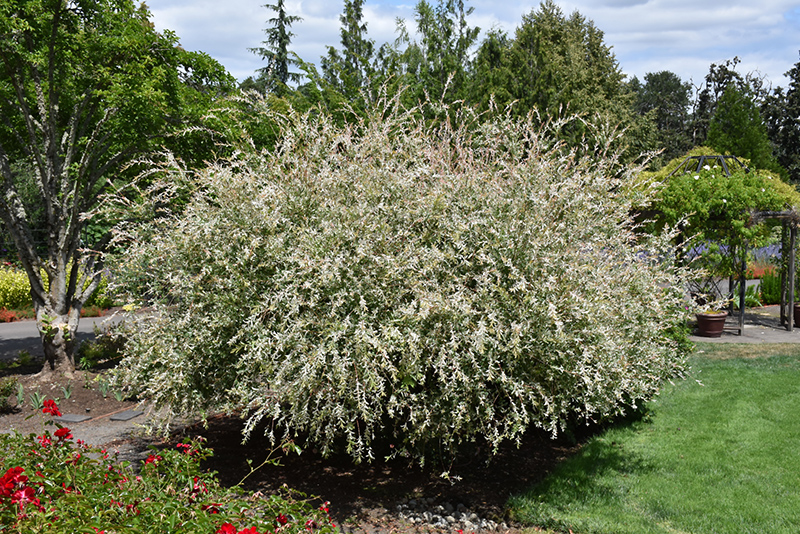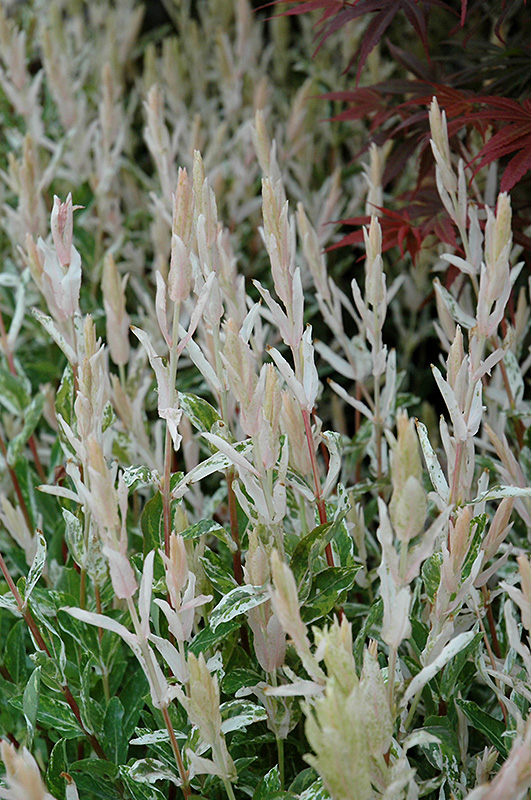>> Home
Tricolor Willow
Salix integra 'Hakuro Nishiki'
Height: 8 feet
Spread: 8 feet
Sunlight:
![]()
Hardiness Zone: 3
Other Names: S.i. 'Albomaculata', Dappled Willow
Description:
One of the showiest of shrubs for foliage color, new growth emerges soft pink and white, literally bathing the plant with color in spring, fades to white variegation in summer; should be pruned every winter for maximum effect; tough and adaptable
Ornamental Features
Tricolor Willow has attractive white-variegated green foliage with hints of pink which emerges pink in spring on a plant with a round habit of growth. The narrow leaves are highly ornamental but do not develop any appreciable fall color. The smooth bark and brick red branches add an interesting dimension to the landscape.
Landscape Attributes
Tricolor Willow is a multi-stemmed deciduous shrub with a more or less rounded form. It lends an extremely fine and delicate texture to the landscape composition which can make it a great accent feature on this basis alone.
This shrub will require occasional maintenance and upkeep, and is best pruned in late winter once the threat of extreme cold has passed. It has no significant negative characteristics.
Tricolor Willow is recommended for the following landscape applications;
- Accent
- Mass Planting
- Hedges/Screening
- General Garden Use
Planting & Growing
Tricolor Willow will grow to be about 8 feet tall at maturity, with a spread of 8 feet. It tends to fill out right to the ground and therefore doesn't necessarily require facer plants in front, and is suitable for planting under power lines. It grows at a fast rate, and under ideal conditions can be expected to live for 40 years or more.
This shrub should only be grown in full sunlight. It is quite adaptable, prefering to grow in average to wet conditions, and will even tolerate some standing water. It may require supplemental watering during periods of drought or extended heat. It is not particular as to soil type or pH. It is highly tolerant of urban pollution and will even thrive in inner city environments. This is a selected variety of a species not originally from North America.

